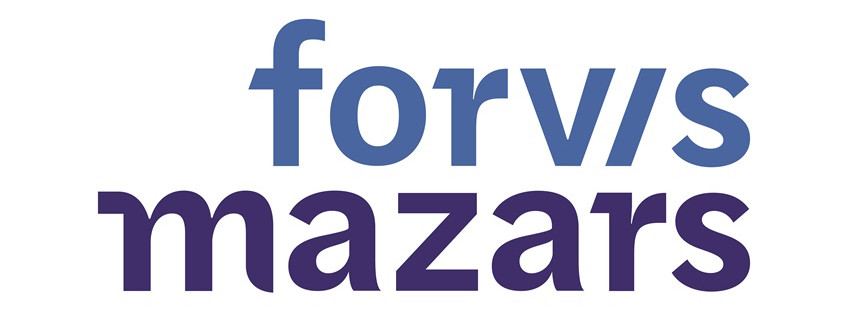Finance News by Forvis Mazars Romania December 2024
Fri | 31.01.2025
Accounting/audit/tax
Salary benefits: a strategic tool for optimising human resources, by Forvis Mazars
Salary benefits are an essential strategic tool for optimising human resources, offering both fiscal and motivational advantages for employees and employers. These benefits, ranging from symbolic gifts to complex Stock-Option plans, significantly contribute to employee retention and satisfaction while optimising salary costs.
Forvis Mazars’ experts have prepared a detailed material on the efficient use of salary benefits while complying with the legislation. They explain the main categories of benefits - from tax-exempt ones to those with standard tax treatment - and how these can be integrated into salary packages.
"According to Article 76 of the Fiscal Code, to be considered non-taxable and exempt from social contributions, certain salary benefits must fall within an individual cap, while other incomes must be expressly provided in the Internal Regulations/Collective Labour Agreement. Additionally, there is a special category of non-taxable salary income (such as mobility allowance, the value of food provided by the employer to their employees, medical subscriptions, contributions to a voluntary pension fund, the value of tourist and/or treatment services, etc.), which, in addition to the individual cap, must also fall within a global cap of 33% of the basic salary to maintain their advantageous tax treatment. If a company wishes to offer more benefits from this category, the total amount must not exceed 33% of the employee's basic salary. The employer has the freedom to establish the order in which these benefits are included in the monthly non-taxable cap, but it is important that this order is clearly specified in an internal company document to ensure transparency and compliance with legal provisions.", mentioned Cătălina Călinescu, Partner, HR & Payroll, Forvis Mazars in Romania.
Read more info HERE.
New deadlines and clarifications regarding digital tax reporting, highly awaited at the end of the year, by Forvis Mazars
In the context of the fiscal digitalisation process, which underwent the most significant transformations this year, considering the changes made to the RO e-Invoicing, RO e-Transport systems, and more recently, RO e-VAT, the Government adopted a new set of fiscal measures at the end of the year by publishing a new 'train' ordinance - Emergency Ordinance no. 38/2024.
The Emergency Ordinance appears to address repeated requests from the business environment:
- in the context of implementing the RO e-Invoicing system for B2C transactions, it is explicitly mentioned that the personal ID number is not mandatory on invoices issued to private individuals;
- the obligation to comply with the RO e-VAT system requirements is postponed until 1 July 2025;
- AEO holders will benefit from an extended grace period (until 31 March 2025) during which no fines will be imposed for non-compliance with e-Transport reporting requirements for the international transport of goods.
At the same time, NAFA recently published a new RO e-Invoicing Guideline, a highly-awaited document by taxpayers, which seems to clarify many of the difficulties in using the system.
Read more info HERE.
Forvis Mazars Group announces new governance model and leadership positions
Forvis Mazars Group (legacy Mazars), the international audit, tax and advisory services partnership, announces the appointments of Hervé Hélias and Pascal Jauffret as Chairman and CEO respectively, as part of its evolved governance structure.
With the new model, which is effective immediately, governance, strategy setting and oversight around key topics will be provided by a Group Governing Board (GGB), with a Group Executive Committee (GEC) entrusted with leadership and execution of those decisions, alongside the day-to-day delivery and implementation of the Group’s strategy. As Chairman, Hélias will lead the GGB and as CEO, Jauffret will lead the GEC.
Chairman Hervé Hélias said: “Stewardship is one of our core values and, as we have grown and strengthened our business, we have decided to evolve our governance framework. This will allow us to continue to grow our partnership as a distinctive and resilient force in the markets and societies in which we work and live.”
He continued: “I am delighted Pascal will assume the role of CEO. With his extensive international experience, I cannot think of anyone better to put our strategy into action.”
Read more info HERE.
Proposal for a regulatory and taxation framework for Real Estate Investment Trusts, by Forvis Mazars
The real estate sector remains an area of interest for investors and the population, with a growing contribution to the Romanian economy, accounting for approximately 15% of the Gross Domestic Product (GDP) in 2023.
Thus, this year, a legislative initiative was put forward for the creation of a specific regulatory and taxation framework for listed companies specialising in real estate investments. The objective of the initiative is to ensure an appropriate framework for the establishment of open investment vehicles in the real estate sector, which would facilitate the attraction of funds for collective investments in this sector.
“Globally, over 40 countries have implemented the legislation for the regulation of REITs, with a total of more than 940 listed REITs. By the end of 2023, these had a market capitalization of approximately $2 trillion, of which about $ 1.3 trillion represented the market capitalization of the USA, as the pioneer in the field.”, mentioned Lucian Dumitru, Tax Partner, Forvis Mazars in Romania.
Read more info HERE.
Updates on Public Country-by-Country Reporting format, by Forvis Mazars
On 2 December 2024, Regulation 2952/2024 was published in the Official Journal of the European Union, establishing the template and electronic reporting format for the submission of information in income tax reports - Public Country-by-Country Reporting (Public CbCR).
Recommendations from the Romanian authorities
In September, the Romanian authorities issued a statement on the website of the Ministry of Finance, providing guidance for taxpayers regarding the format to be used for publishing. Taxpayers can choose between the following options:
- Use the reporting instructions from Section III, Parts B and C of Annex III to Directive 2011/16/EU, which refers to the existing non-public CbCR format.
or
- Develop their own reporting format, ensuring that all required information, as per applicable accounting regulations, is included.
This clarification is important, as the first reporting financial year under Romanian Public CbCR legislation is 2023, while the template and electronic format set out by the EU Regulation will apply to reports covering financial years starting on or after 1 January 2025.
Read more info HERE.
Year-end Closing: essential updates in accounting, tax, and HR & payroll, by Forvis Mazars
As another financial year draws to a close, businesses face the crucial task of ensuring accurate and compliant year-end procedures. Join Forvis Mazars on 22 January 2025 for an insightful webinar that will guide you through the complexities of year-end closing, bringing together expertise in accounting, tax, and HR & payroll matters.
Read more info HERE.
Forvis Mazars in Romania strengthens its leadership team with four new Directors
As of 1 January 2025, Forvis Mazars has appointed Mihaela Hampu and Alexandru Stanciu as Tax Directors, Marius Roman as Audit Director, and Ovidiu Strasszer as Regulatory Reporting Director, to further strengthen the firm’s capabilities and expertise in key areas of their business.
Read more info HERE.
This article is provided by our Finance Partner, Forvis Mazars Romania.
2025
2024
-
November (1)
-
October (1)
-
July (1)
-
May (1)
-
March (1)
-
February (1)
-
January (1)
2023
-
November (1)
-
September (2)
-
August (2)
-
June (1)
-
May (1)
-
April (2)
-
March (1)
-
February (2)
-
January (2)
2022
-
December (3)
-
November (4)
-
October (3)
-
September (4)
-
August (3)
-
July (6)
-
June (4)
-
May (4)
-
April (8)
- Marketing News by diARK - April 2022
- Finance News by Mazars Romania - April 2022
- Experience the Perfect Chauffeur Transfer with David Intercar
- Mobility News by Business Lease - April 2022
- NRCC MEMBER IN SPOTLIGHT, WOLTERS KLUWER
- Crowe Romania and DeclaratiaUnica.ro engage in the automation of the single return form and the offering of personalized consultancy
- Cryptocurrency News by Bitcoin Romania, April 2022
- Legal News by BBW LAW - April 2022
-
March (6)
-
February (4)
-
January (5)
2021
-
December (3)
-
November (4)
-
October (2)
-
September (2)
-
August (1)
-
July (5)
-
June (3)
-
May (5)
-
April (4)
-
March (7)
- Cryptocurrency News by Bitcoin Romania, April 2021
- HR News by CNA International Executive Search Romania, March
- Real Estate News by CTP Invest, March 2021
- Sale-Purchase of Agricultural Land Located Outside Build-Up Areas
- MEET THE NRCC BOARD CANDIDATES 2021
- Fleet Management – Complete Makeover or Small Adjustments?
- Cryptocurrency News by Bitcoin Romania, March 2021
-
February (5)
-
January (6)
2020
-
December (2)
-
October (2)
-
September (3)
-
August (2)
-
July (6)
- NRCC Member in Spotlight Interview - Autonom
- Insolvency Proceedings: New Rules
- Member in Spotlight, UniCredit Bank
- Financing opportunities overview for large enterprises, SMEs and other organizations
- Companies: Simplification of Formalities
- Call for Leaders | What is your readiness score to benefit from the EU SURE initiative?
-
June (5)
-
May (8)
- The State of Alert. New rules for the collective proceedings
- The Retail Industry
- EU grants up to 6 Mil Euro for SME-s investment projects
- Member in spotlight, Heisterkamp Transportation Solutions
- State of Alert...What Is New
- The forced transformation of the automotive industry – Mazars analysis
- State of Alert in Romania
- Reducing the Impact of the Pandemic
-
April (6)
-
March (2)
2019
-
November (2)
-
July (1)
-
June (1)
-
March (2)
-
January (1)
2018
-
October (2)
-
September (1)
-
August (1)
-
July (3)
-
June (2)
-
May (1)
-
April (1)
-
March (3)
-
February (13)
- NRCC Elections 2018 - Elena Badea
- NRCC Elections 2018 - Loreda Dragomir
- NRCC Elections 2018 - Simina Fodor
- NRCC Elections 2018 - Manuel Herraiz Orti
- NRCC Elections 2018 - Tom Leene
- NRCC Elections 2018 - Mircea Moga
- NRCC Elections 2018 - Ronald Oort
- NRCC Elections 2018 - Razvan Pascu
- NRCC Elections 2018 - Alexandru Popescu
- NRCC Elections 2018 - Mihaela Tudor
- NRCC Elections 2018 - Loredana Van de Waart
- NRCC Elections 2018 - Edwin Warmerdam
- NRCC Elections 2018 - Philip Aarsman
2017
-
November (1)
-
September (1)
-
August (2)
-
May (1)
-
April (2)
-
March (1)
2016
-
November (1)
-
September (8)
-
June (1)
-
February (2)








